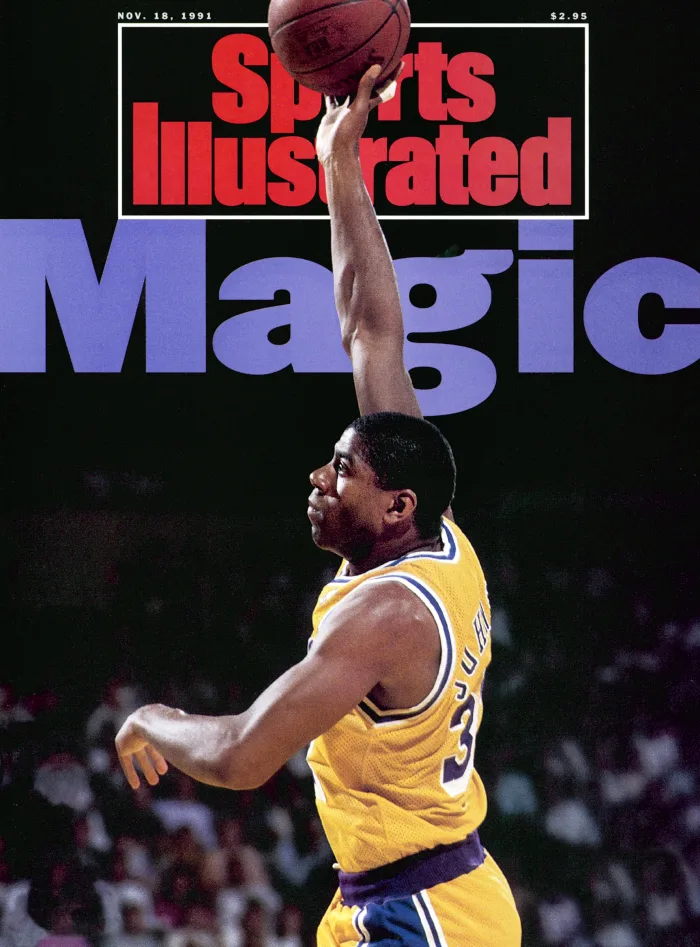Netflix
HBO Max
Netflix didn’t win big on Oscar nominations day, but it did score by netting 13 million new subscribers in the fourth quarter. That’s the company’s best 4Q number ever and rivaled growth last seen during pandemic lockdowns. Also, revenue growth was up 12.5%, underscoring again how far away the streaming pioneer has pulled away from rivals from the traditional studios. HBO licensing its popular “Sex and the City” series to Netflix, in a reversal of a onetime policy prohibiting such deals, is a recent sign of that.
In other news, Netflix’s $5 billion, 10-year deal with WWE to stream live sports offers clues as to how the company might evolve over the coming years, and no doubt made ailing sports broadcasters uneasy.
Sports Illustrated
Pitchfork
An exceptionally bad week for old-line US media continued with a shambolic layoff announcement at Sports Illustrated that many believe is the final nail in the storied magazine’s coffin. Almost simultaneously, Condé Nast said that Pitchfork, the 29-year-old website that reigned as the authoritative voice of rock music criticism throughout the 2000s, would be folded into GQ after shedding much of its staff, including EIC Puja Patel.
The Los Angeles Times
The biggest newspaper on the West Coast is in crisis following the abrupt departure last week of EIC Kevin Merida after just three years in the role, the subsequent exits of two managing editors, the first union-organized walkouts in the company’s 142-year history, and talk of job cuts affecting 20% of the newsroom. All of this follows June layoffs that affected 13% of the newsroom, bringing its numbers back to those preceding biotech billionaire Patrick Soon-Shiong’s 2018 purchase of the outlet and subsequent hiring spree.
These dire straits are being framed as the latest blow to local news. But while the LAT’s roughly 500,000 digital subscribers is just 5% of the New York Times’, this kind of turmoil at the leading paper in America’s second biggest city proves that marquee name players are very much in danger.
Australia
Australia’s main public broadcaster, among the country’s most trusted institutions, is the latest outlet mired in internal conflict over the Israel-Gaza War and how staffers can or can’t respond to it. Antoinette Lattouf, a popular Lebanese Australian journalist, posted an Instagram Story critical of Israel. The next day, editors told her her radio show would be ending early. The incident has led to a vote of no-confidence in the broadcaster’s top editor, legal skirmishes and more questions about how journalists, and the organizations normally dedicated to protecting them, should operate in such riven times.
The Baltimore Sun
The Baltimore Banner
David D. Smith, owner of the sprawling Sinclair networks of TV stations, bought the Sun from Alden Global Capital, the hedge fund that acquired it in 2021. Some are optimistic that the paper is back in the hands of a Baltimore local for the first time in four decades. Others worry on account of Sinclair’s pronounced conservative ideology—and Smith announcing to staffers that he’d read the paper just four times in recent months. Not so long ago, billionaires were seen as the saviors of struggling news organizations. Times have changed.
The Banner might make sense of that change and emerge as a viable, digital, non-profit news model, driven by a sense of public duty, after taking in many Sun alums.
Polish media
Ukrainian press freedoms
The Polish constitutional court ruled against Prime Minister Donald Tusk’s proposed reform of state media, the latest setback for Tusk as he pledges to overhaul the country after years of anti-democratic actions by the rightwing Law and Justice party. The PM’s office said the ruling had no legal bearing given the court’s extreme politicization, with most of the justices having been appointed by the populists.
And a media watchdog group in Ukraine directly called on President Volodymyr Zelenskyy to denounce supporters of his who have harassed, online and off, journalists whose freedoms have been curtailed under the guise of national security concerns since the start of the Russia-Ukraine War.
CNN
MSNBC
With a Trump nomination a near-certainty after his win in New Hampshire, a debate that will surely echo loudly throughout the year grows louder: to what extent should the media cover him? CNN aired 10 minutes of Trump’s speech after he won the Iowa caucuses, upsetting some staffers who aired their grievances on an internal call with network chief Mark Thompson. MSNBC didn’t air the speech at all.
“It is not out of spite. It is not a decision that we relish,” anchor Rachel Maddow said. “It is a decision that we regularly revisit, and honestly, earnestly. It is not an easy decision. But there is a cost to us as a news organization of knowingly broadcasting untrue things.”

